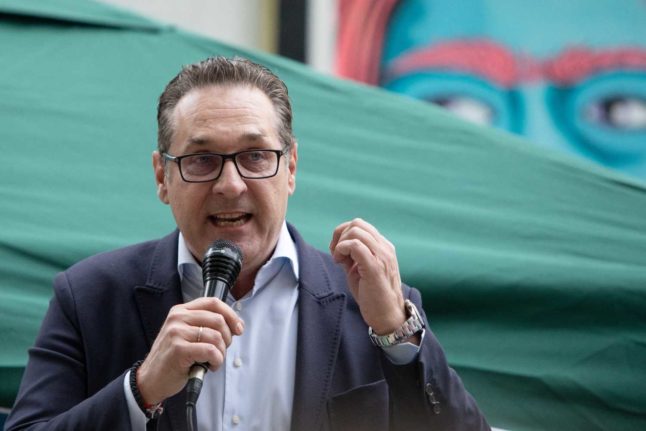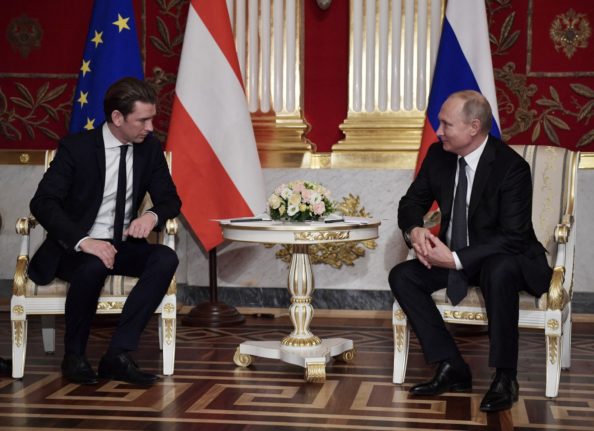The trial of Heinz-Christian Strache, 52, opened on Tuesday and has its roots in the so-called “Ibiza-gate” scandal which forced his resignation in May 2019 and brought down the coalition government between the FPOe and the centre-right People’s Party (OeVP) of Chancellor Sebastian Kurz.
The scandal broke when video footage emerged of Strache promising public contracts to a woman posing as the niece of a Russian oligarch in exchange for election campaign support for the FPOe.
‘Ibizagate’: What you need to know about the Austrian political corruption scandal
The video prompted a sprawling investigation by anti-corruption prosecutors which uncovered several other allegations of wrongdoing against Strache and other prominent politicians.
The current trial focuses on charges that Strache helped change the law to benefit an FPOe party donor.
The final hearings in the trial, and the verdict, were initially expected on Friday but the trial was adjourned and “the next hearings will be on August 23 and 27,” Christina Salzborn, vice-president of the relevant court, confirmed to AFP in an email.
Strache stands accused of helping to change the law for the benefit of his co-accused Walter Grubmueller, a long-standing friend who owned a private health clinic and donated 10,000 euros ($11,860) to the FPOe.
According to an SMS exchange uncovered by prosecutors and leaked to Austrian media, Strache asked Grubmueller which amendments to legislation would be needed in order for the clinic “to finally be treated in a fair manner”.
During Strache’s time in government, the law was amended to enable Grubmueller’s clinic to receive money from the public health insurance fund.
On Friday judge Claudia Moravec-Loidolt accepted a request from prosecutors to present fresh evidence relating to a separate donation from Grubmueller to the FPOe of 2,000 euros. Witnesses relating to the new allegation — including former FPOe MPs — will be questioned at the hearings in August, Salzborn said.



 Please whitelist us to continue reading.
Please whitelist us to continue reading.
Member comments